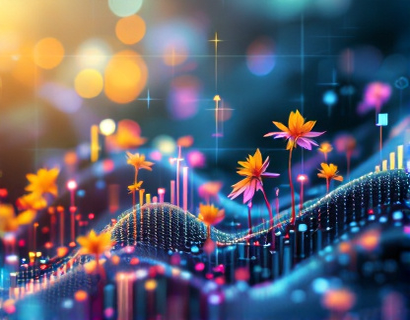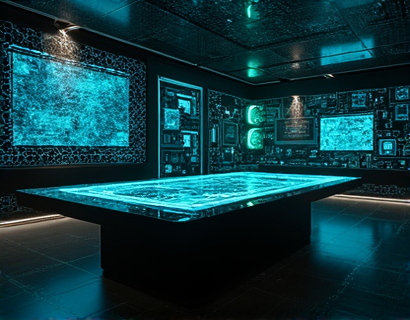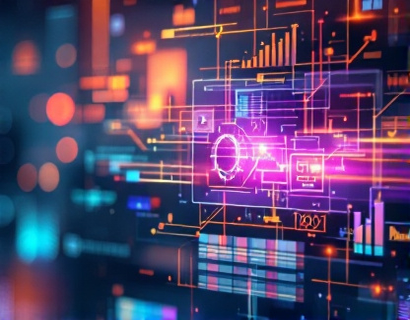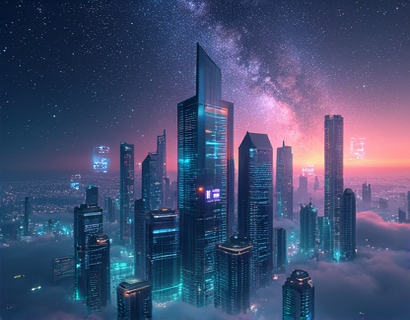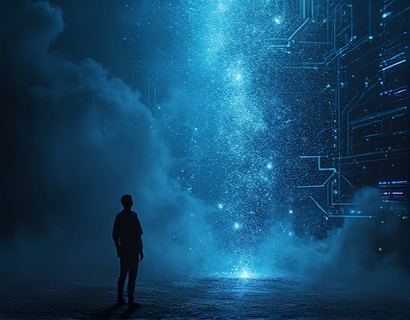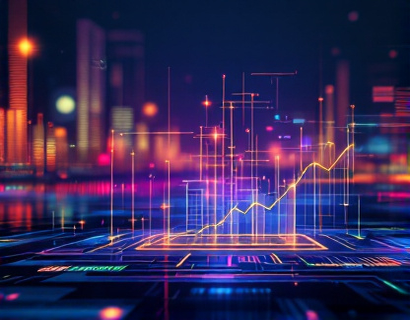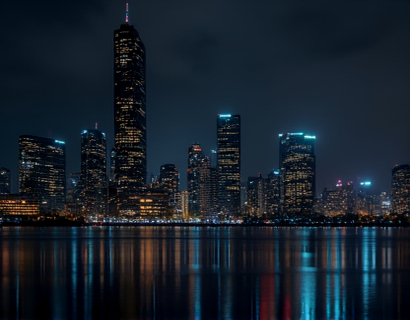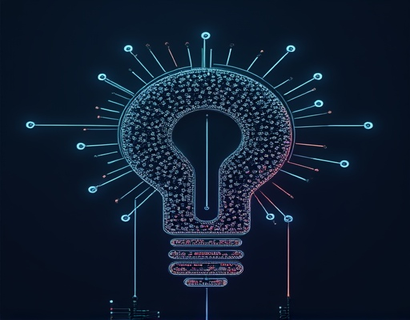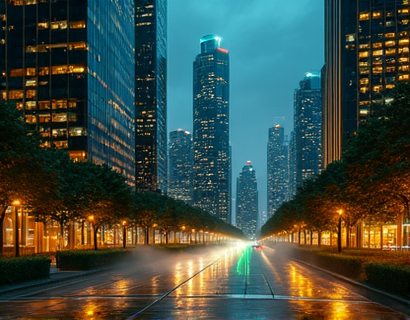AI-Driven Music Creation: Transforming Artistry with Intelligent Composition Tools
The landscape of music creation is undergoing a revolutionary transformation with the advent of AI-driven tools. These intelligent composition tools are not just enhancing the creative process but are also redefining what it means to be a musician in the digital age. The integration of artificial intelligence in music production offers unprecedented opportunities for both seasoned professionals and emerging artists, providing them with powerful resources to bring their musical visions to life.
AI in music creation is more than just a novelty; it's a game-changer. The technology leverages complex algorithms and machine learning to analyze vast amounts of musical data, enabling it to generate compositions, suggest harmonies, and even create entire tracks. This capability not only streamlines the music-making process but also opens up new avenues for creativity and innovation.
Enhancing Creativity with AI Tools
One of the most significant benefits of AI-driven music creation tools is their ability to enhance creativity. These tools can analyze a musician's style and preferences, then generate suggestions that align with their artistic vision. For instance, an AI system can analyze a series of chord progressions and propose alternative harmonies that maintain the original mood while introducing fresh elements. This collaborative approach between human creativity and machine intelligence fosters a more dynamic and inspiring compositional process.
Moreover, AI tools can help overcome creative blocks by providing new ideas and perspectives. When a musician is stuck, an AI can offer unexpected musical phrases or patterns that might spark a breakthrough. This feature is particularly valuable for artists who are looking to experiment with different genres or styles, as AI can seamlessly blend elements from various musical traditions.
Streamlining Composition and Production
The process of composing and producing music is complex and time-consuming. Traditional methods often involve hours of trial and error, manual adjustments, and repetitive tasks. AI-driven tools significantly reduce this workload by automating many of these processes. For example, AI can quickly generate a full arrangement based on a few initial notes, saving the artist countless hours of manual work. This efficiency allows musicians to focus more on the creative aspects of their craft rather than getting bogged down in technical details.
Additionally, AI can assist in the mixing and mastering stages. By analyzing the audio and applying optimized settings, these tools can ensure a professional-sounding final product without the need for extensive manual tweaking. This not only saves time but also ensures consistency across different tracks and projects.
Intuitive Features for All Levels
What sets AI-driven music creation tools apart is their accessibility. These tools are designed to be user-friendly, making them suitable for musicians at all skill levels. Beginners can use these platforms to learn and experiment with music production without needing extensive technical knowledge. Advanced features, such as customizable algorithms and detailed parameter adjustments, cater to more experienced users who want to fine-tune every aspect of their compositions.
Intuitive interfaces and drag-and-drop functionality make it easy for users to navigate and utilize the tools effectively. Visual aids, such as waveform editors and real-time preview options, provide immediate feedback, allowing artists to make informed decisions on the fly. This immediacy enhances the creative flow and keeps the momentum going.
Elevating Sound Quality
Sound quality is a critical aspect of music production, and AI-driven tools excel in this area. By leveraging advanced signal processing techniques, these tools can enhance the clarity, depth, and richness of audio recordings. For instance, AI can apply sophisticated equalization and compression algorithms to ensure that each element in a mix is perfectly balanced. This results in a polished and professional-sounding track that would otherwise require extensive manual work.
Furthermore, AI can help in noise reduction and artifact removal, ensuring that the final product is free from unwanted distortions. This is particularly beneficial for artists working with field recordings or live performances, where background noise can be a significant issue. The ability to maintain high sound quality while streamlining the production process is a significant advantage of using AI in music creation.
Collaboration and Sharing
The collaborative nature of music creation is another area where AI-driven tools shine. These platforms often include features that facilitate collaboration among musicians, producers, and other creatives, regardless of their physical location. Real-time collaboration allows multiple users to work on the same project simultaneously, with AI ensuring that all changes are seamlessly integrated. This capability is especially valuable in today's global music industry, where remote collaboration is increasingly common.
Sharing and distributing music has also been simplified by AI-driven tools. Integrated distribution channels and social media sharing options make it easy for artists to share their work with a global audience. AI can even suggest optimal distribution strategies based on data analysis, helping artists reach the right listeners and maximize their reach.
Personalization and Customization
One of the most exciting aspects of AI in music creation is its ability to offer personalized experiences. These tools can learn from a user's preferences and habits, tailoring suggestions and features to their specific needs. For example, an AI system might recognize that a user frequently uses certain effects or chord progressions and prioritize these in future suggestions. This level of personalization ensures that the tools remain relevant and useful, adapting to the evolving needs of the artist.
Customization options are also extensive, allowing users to fine-tune every aspect of the AI's behavior. From adjusting the level of automation to selecting specific algorithms for different tasks, artists have complete control over how the AI assists them. This flexibility ensures that the tools can be tailored to fit any creative workflow, making them indispensable companions in the music creation process.
Challenges and Considerations
While AI-driven music creation tools offer numerous benefits, it's important to acknowledge the challenges and considerations involved. One of the primary concerns is the potential for over-reliance on technology, which could stifle genuine creativity. It's crucial for artists to use these tools as aids rather than crutches, ensuring that the human element remains at the forefront of the creative process.
Another consideration is the ethical use of AI in music creation. Issues such as copyright infringement and the unauthorized use of sampled material need to be addressed. AI systems must be designed with robust safeguards to prevent the misuse of intellectual property and ensure that artists respect the rights of others.
The Future of Music Creation
As AI technology continues to advance, the possibilities for music creation will only expand. Future developments may include more sophisticated natural language processing, allowing artists to compose music using voice commands or even thought interfaces. The integration of virtual reality and augmented reality could also revolutionize how musicians interact with their tools and share their creations with audiences.
The collaboration between humans and AI in music creation is poised to become even more seamless and intuitive. As these tools become more sophisticated, they will not only assist in the creation process but also inspire new forms of artistic expression. The future of music creation is bright, with AI-driven tools serving as powerful allies in the pursuit of musical excellence.





